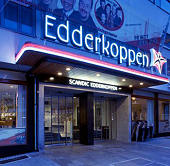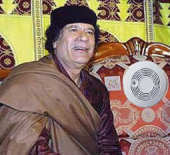 Last week DDTC posted a notice on its website warning license applicants that their license applications would be returned if the applicant’s name on the license application did not exactly match the name on the applicant’s registration. Unsure of your exact name as registered? Don’t call DDTC, because they won’t tell you. A “mass-mailing” in January 2007 is promised in which everyone will be told their DDTC approved names. If Internet gambling were allowed, I might make a book on the likelihood of that actually occurring in January.
Last week DDTC posted a notice on its website warning license applicants that their license applications would be returned if the applicant’s name on the license application did not exactly match the name on the applicant’s registration. Unsure of your exact name as registered? Don’t call DDTC, because they won’t tell you. A “mass-mailing” in January 2007 is promised in which everyone will be told their DDTC approved names. If Internet gambling were allowed, I might make a book on the likelihood of that actually occurring in January.
Even more ominous is a sentence slipped in at the very end of the notice:
Subsequent Web site notices which will be posted shortly on the following related matters:
. . .
2. Implementation of new procedures in the Office of Defense Trade Controls Compliance (Compliance & Registration Division) to reject deficient registration submissions.
This seemingly innocent promise should be filed in the “I Told You So” Folder. DDTC’s new informal guidelines under Part 129 expanded the scope of overseas sales representatives that will now be required to file registration applications. Most of these sales reps are foreign nationals for whom English is not their first language and for whom correctly filing out a Form DS-2032 is complicated by DDTC’s confusing and inconsistent instructions as we’ve pointed out before. So we predicted a wave of deficient registration applications and it now seems we were probably right.

 Posted by
Posted by  Category:
Category: 

 According to one
According to one  Earlier this month, the Scandic Edderkoppen Hotel in Oslo, Norway,
Earlier this month, the Scandic Edderkoppen Hotel in Oslo, Norway,  Back in the 1970s when the Shah was on his throne and Iran was our friend, the U.S. sold Iran a fleet of F-14 Tomcat fighter jets. Iran is still flying them and needs parts. In fact, F-14 parts were on the top of the list of the parts delivered to Iran as part of the Iran-Contra deal. So where is Iran getting parts today? From the Pentagon apparently.
Back in the 1970s when the Shah was on his throne and Iran was our friend, the U.S. sold Iran a fleet of F-14 Tomcat fighter jets. Iran is still flying them and needs parts. In fact, F-14 parts were on the top of the list of the parts delivered to Iran as part of the Iran-Contra deal. So where is Iran getting parts today? From the Pentagon apparently. Six months after the State Department removed Libya from the list of state sponsors of terrorism, the Nuclear Regulatory Commission got around to changing its regulations to reflect this removal. In a
Six months after the State Department removed Libya from the list of state sponsors of terrorism, the Nuclear Regulatory Commission got around to changing its regulations to reflect this removal. In a 

